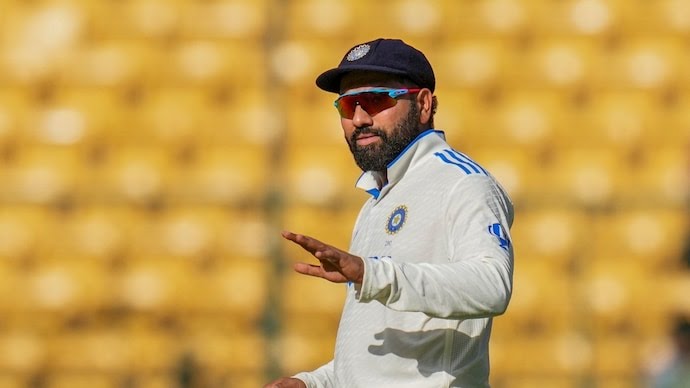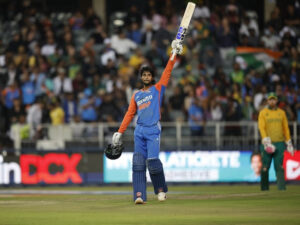
Title: “Great Leader or Convenient Confession? VVS Laxman’s Praise for Rohit Sharma Sparks Debate”
Former Indian cricketer VVS Laxman recently showered praise on Rohit Sharma, hailing him as a “great leader” for openly admitting a tactical error during the second Test against Australia in Bengaluru. Rohit’s candid acknowledgment of a fielding miscalculation, which might have contributed to India’s failure to maintain control in a critical phase, was seen by Laxman as a hallmark of exceptional leadership. But while some applaud Rohit’s self-awareness, others are left wondering if such admissions are genuine accountability or convenient after-the-fact damage control.
The Mistake and Admission: A Leader’s Honesty?
In the post-match conference, Rohit admitted that his decision to maintain a certain fielding setup—despite the conditions favoring a more aggressive approach—was a tactical mistake. “Looking back, I think we could have done things differently in that session,” Rohit said. The comment struck a chord with Laxman, who lauded him on social media, stating that owning up to mistakes is what distinguishes great leaders from average ones. According to Laxman, Rohit’s ability to reflect on his decisions openly shows maturity and bodes well for the future of Indian cricket.
However, the question must be asked: is this self-awareness or mere optics?
Tactical Error or Leadership Blunder?
It’s not the first time that captains have faced criticism for on-field decisions, but what’s intriguing here is the timing and nature of Rohit’s admission. Some argue that a “great leader” would have foreseen the tactical misstep during the game and corrected it in real-time, rather than pointing it out after the damage was done. Critics suggest that while humility is admirable, strategic brilliance and quick thinking under pressure define true greatness on the cricket field.
Was this confession simply an attempt to deflect the heat and present an image of self-accountability? If mistakes are acknowledged after they have already led to a loss, does that absolve a leader from criticism? Or worse, does it signal a lack of foresight?
Rohit vs. Past Captains: A Double Standard?
The issue becomes more complex when Rohit’s admission is contrasted with the treatment of former Indian captains like Virat Kohli and MS Dhoni. Kohli, often described as overly aggressive, was rarely given the same leniency when it came to tactical mistakes. His leadership style, while fiery, was criticized for every misstep on the field, and public apologies weren’t seen as enough to shield him from the backlash. Similarly, MS Dhoni, known for his “cool head,” often faced calls for resignation when India’s performances faltered—even if he owned up to decisions after the fact.
Rohit, on the other hand, is being celebrated for admitting a mistake that could have, arguably, been corrected during the match itself. Is the praise for Rohit reflective of a double standard? Are we as a cricket-watching public more lenient toward some leaders, while others are expected to perform flawlessly under pressure?
The Role of Media and Popularity
Another factor influencing the discourse around Rohit Sharma’s leadership is his immense popularity. Rohit, as a beloved cricketer, commands a large fanbase, and his personal charm often shields him from the harsher scrutiny that others might face. Laxman’s praise, in this context, can be seen as reinforcing the narrative that Rohit can do no wrong—a narrative that perhaps isn’t applied equally across the board.
The media’s role in framing this incident is also important. While admitting mistakes should be seen as a positive trait, the pedestal on which Rohit’s honesty is placed seems disproportionate. If leaders are to be judged by their ability to make real-time decisions, not simply reflect on them after the game is over, does admitting a mistake really qualify as great leadership?
Conclusion: Leadership Beyond Admission
In the end, Laxman’s praise of Rohit Sharma raises a larger question about what we value in a cricket captain. Is the ability to admit mistakes enough to define great leadership? Or should we be looking for captains who can recognize and fix those mistakes before they become costly?
Rohit’s admission in Bengaluru will likely be remembered as an example of humility and self-awareness, but whether that alone is enough to elevate him to the status of a “great leader” remains open to debate. True leadership isn’t just about acknowledging errors—it’s about preventing them when it matters most. Perhaps, in this instance, Rohit missed that mark.






